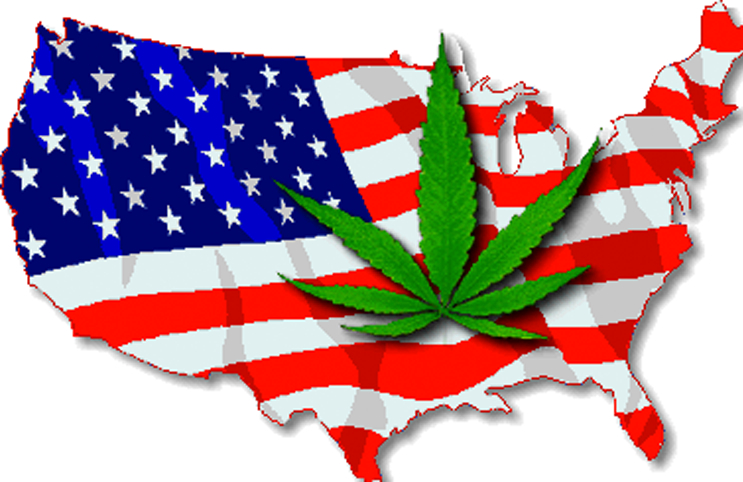The United States could face a dilemma if cannabis is legalized at federal level
A nice chunk of cash is going directly into the federal government’s wallet every single year, all because of Section 280E of the tax code
A plant that was formerly frowned upon is finally being appreciated for its medicinal and recreational benefits. However, cannabis remains a Schedule I drug at the federal level, despite the fact the government is making a ridiculous amount of revenue from the industry.
Eight U.S. states and the District of Columbia have adopted laws legalizing cannabis for recreational use. Meanwhile, 30 states have legalized the green plant for medicinal use. This isn’t overly surprising, considering the fact that 64 percent of Americans favored the prospect of cannabis legalization in 2017, according to a national Gallup poll.
Nonetheless, growing support for cannabis reform has not exactly prompted the government to legalize weed at the federal level. Even with Canada gearing up for complete cannabis legalization this fall, the U.S. government still hasn’t changed its tune on federal level cannabis legalization.
Cannabis is still a Schedule I drug
The fact that cannabis remains a Schedule I drug is not exactly ideal for the weed industry in the U.S. A classification of this kind restricts cannabis companies from operating within the industry as freely as they’d like.
Even though the drug has been approved at the state level in numerous U.S. states, company owners are still struggling to obtain cannabis banking services, which can make business tricky.
Section 280E of the U.S. tax code causes an issue for cannabis business owners
Now, let’s talk about Section 280E of the U.S. tax code. Created more than three decades ago, this important segment of the tax code was first introduced back in the year 1982. It was initiated after a court case that occurred the previous year saw a convicted cocaine trafficker argue his rights to deduct normal business tax deductions on his federal income taxes.
To put it simply, 280E prohibits companies that sell Schedule I or II substances from taking normal business income tax deductions.
What does this mean for businesses operating in the U.S. weed industry?
The tax rate could be pinned at 70 to 90 percent, making the prospect of turning over a profit rather worrying for business owners.
U.S. Federal Government collects income tax on state-level cannabis companies
It seems that the U.S. Federal Government is a little bit greedy and, well, downright unfair.Despite the fact cannabis is illegal at the federal level, the federal government doesn’t have a problem collecting income tax on cannabis companies that are operating at the state level.
A nice chunk of cash is going directly into the federal government’s wallet every single year, all because of Section 280E of the tax code. If cannabis was legalized at the federal level in the U.S., the government would have to forfeit a lot of cash on an annual basis.
In the event that cannabis companies were able to take normal business income tax deductions, the U.S. government could miss out on as much as $5 billion in revenue. The chances of this happening are slim, however, due to the fact the federal government is still drowning somewhat beneath its annual budget deficit.
Congress probably won’t approve a bill supporting cannabis legalization in the U.S., unless they are certain their financial situation would not suffer in as a result of doing so.
The government will surely need to consider the black market, which accounted for over 85 percent of North America’s cannabis sales in 2016. Since black market dealers have significantly lower overhead costs, legal channels could easily be sabotaged by underselling.








